|
Sinnickson |
|
||||
|
Philadelphia Inquirer - September 18, 1884 |

|
|
Philadelphia Inquirer - August 10, 1888 |
|
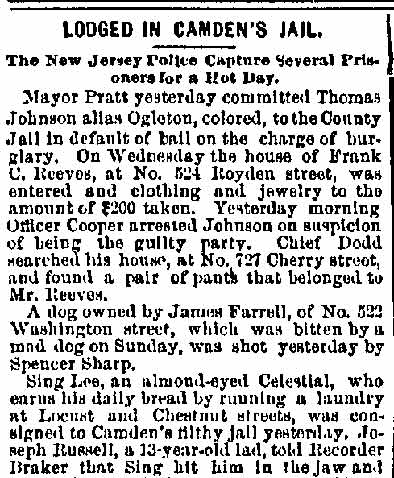
|
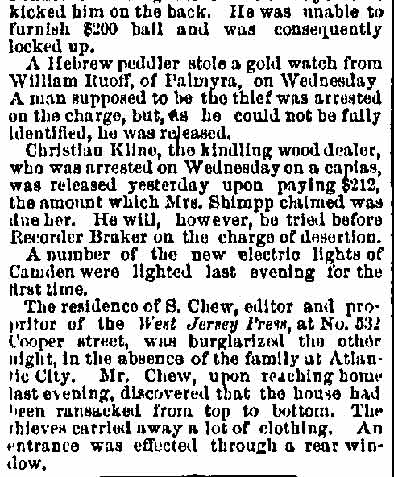
|
|
Jesse
Pratt - Thomas Johnson -
Frank C. Reeves - Officer Edward S. Cooper
- Samuel
Dodd James Farrell - Sing Lee - Joseph Russell - Christian Kline - Benjamin Braker - Sinnickson Chew Royden Street - Cherry Street - Washington Street - Cooper Street |
|
|
SINNICKSON CHEW, PRINTER AND
STATIONERY, ONE of the oldest and most favorably known houses of this kind in the city is that of Mr. sinnickson chew. this gentleman succeeded the late samuel c. harbert in 1862, and has managed the business successfully since its inception. the store is about 20x30 feet in dimensions,, and the printing room up stairs occupy the third floor which is 50x90 feet. three cylinder and three job presses are kept busy. the printing business done is without exception the largest in the city; a newspaper is printed here, the well known west jersey press. special attention is also paid to catalogue and job' work, which is done in the shortest possible time. a fine stock of stationery, blank books, paper, pens and fancy articles are also kept. twenty-five skilled workmen are employed when running normally. Mr. Chew is a native of Salem County, New Jersey, he has been a prominent resident of the city for many years, and always to be found among the men who are looking towards Camden's best interests. |
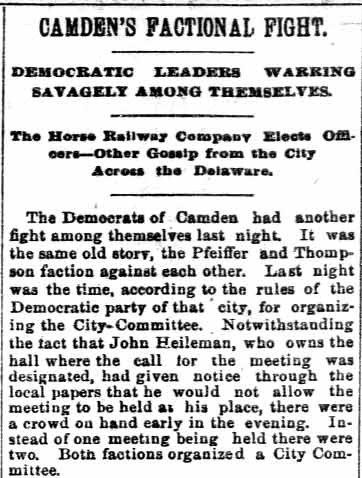
|
Philadelphia
Inquirer
George
Pfeiffer Jr.
- William "Billy" Thompson Click on Image for Complete Article |
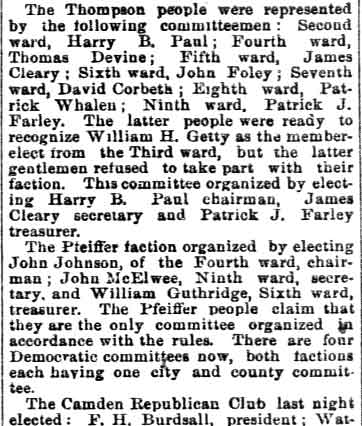
|
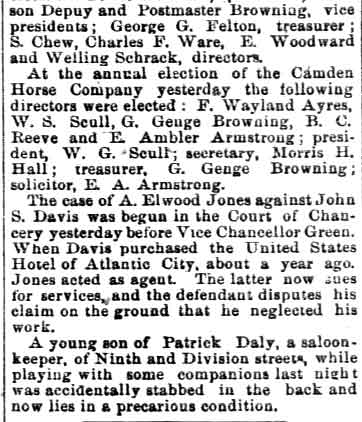
|
|
Click on Images for PDF File of Complete Article |
|
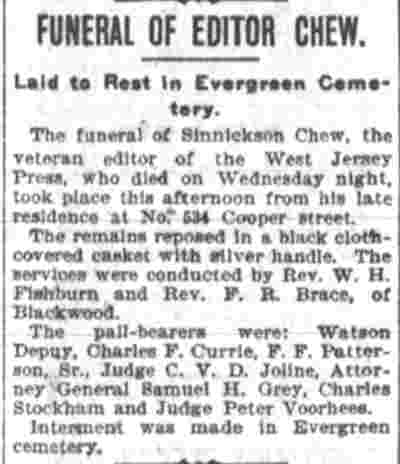
|
Camden
Post-Telegram Sinnickson Chew Watson Depuy Charles F. Currie Francis Ford Patterson Sr. Charles Van Dyke Joline Samuel H. Grey Charles Stockham Peter Voorhees |